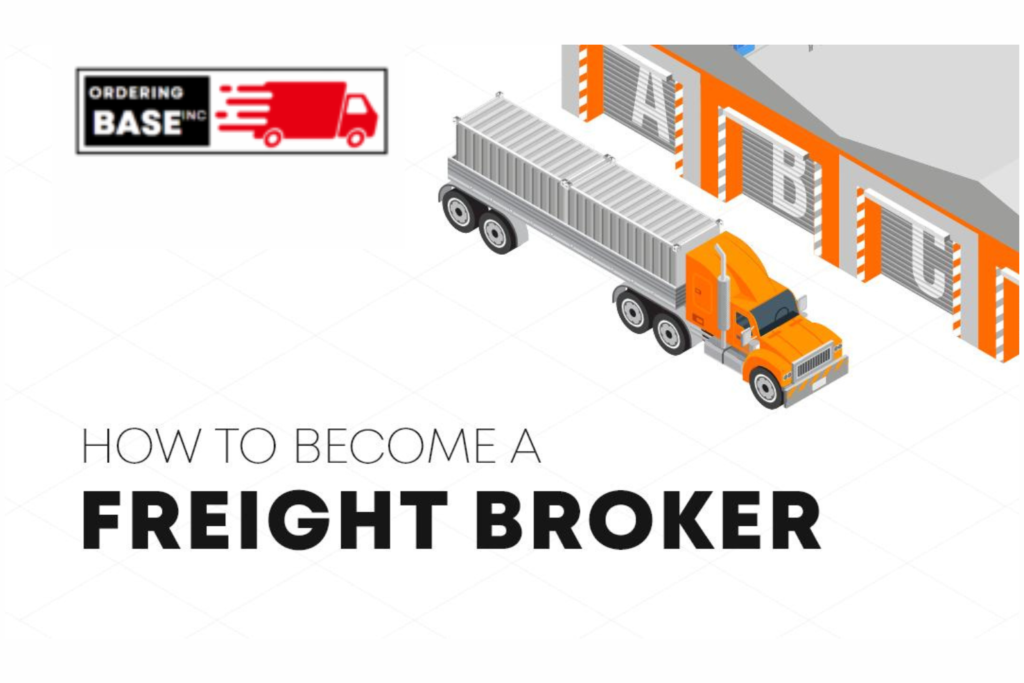To become a broker for a trucking company, follow these steps:

Research and Understand the Industry
Familiarize yourself with the trucking and logistics industry. Learn about market trends, regulations, and the role of brokers in the transportation process.
Obtain Necessary Licenses and Permits:
To operate legally as a broker, you’ll need to obtain a broker authority from the Federal Motor Carrier Safety Administration (FMCSA). This involves completing an application, undergoing a background check, and providing proof of financial responsibility.
Gain Relevant Experience:
While not always mandatory, gaining experience in the trucking or logistics industry can be beneficial. Consider working for a brokerage firm or in a related field to gain firsthand knowledge and experience.
Develop Strong Negotiation Skills:
Negotiation is a key aspect of brokering freight. Practice negotiating rates with carriers and shippers to secure favorable terms and build relationships.
Build a Network of Carriers and Shippers:
Establish relationships with reputable carriers and shippers. Building a reliable network will enable you to efficiently match freight with available trucking capacity.
Invest in Technology:
Utilize freight brokerage software and online platforms to streamline operations, track shipments, and manage logistics more effectively.
Stay Informed and Adapt:
The trucking industry is constantly evolving, with new regulations, technologies, and market trends emerging regularly. Stay informed about industry developments and be prepared to adapt your strategies accordingly.
Provide Excellent Customer Service:
Building trust and maintaining good relationships with clients is essential for long-term success. Provide excellent customer service, communicate effectively, and address any issues promptly.
Obtain Insurance Coverage:
As a freight broker, you’ll need to secure appropriate insurance coverage to protect yourself and your clients against potential risks and liabilities.
Stay Compliant with Regulations:
Ensure compliance with all applicable regulations and laws governing the trucking and brokerage industry. Stay up-to-date with changes in regulations to avoid any legal issues.
By following these steps and continuously learning and adapting to the dynamic nature of the industry, you can become a successful broker for a trucking company.
FAQs (Frequently Asked Questions)
Q: How do I obtain a broker authority from the FMCSA?
To obtain broker authority, you need to submit an application to the Federal Motor Carrier Safety Administration (FMCSA), undergo a background check, and provide proof of financial responsibility.
Q: Do I need prior experience to become a broker for a trucking company?
While prior experience is not always required, gaining experience in the trucking or logistics industry can be beneficial for understanding the nuances of the business.
Q: What are the key responsibilities of a broker for a trucking company?
Brokers for trucking companies are responsible for negotiating freight rates, matching shipments with carriers, handling paperwork, and ensuring timely delivery.
Q: How can I build a network of carriers and shippers?
Building a network involves reaching out to carriers and shippers through industry events, online platforms, and networking opportunities. Building strong relationships is key.
Q: What insurance coverage do I need as a broker for a trucking company?
As a broker, you’ll need liability insurance to protect against potential damages or losses. Additional coverage options may include contingent cargo insurance and errors and omissions insurance.
